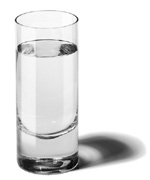Radon in Drinking Water
 Public Health Standards for
Radon in Drinking Water
Public Health Standards for
Radon in Drinking Water
EPA's proposal for public health standards for radon in drinking water provided two options to States and community water systems for reducing radon health risks in both drinking water and indoor air quality, a unique multimedia framework authorized in the 1996 Amendments to the Safewater Drinking Water Act (SDWA). Information about the proposed rule and information relating to the status of the rule can be found at: www.epa.gov/safewater/radon.html.
National Academy of Sciences (NAS) Report on Radon in Drinking Water "Risk Assessment of Radon in Drinking Water."
If you are interested in finding a qualified radon service professional to test or mitigate your home, or you need to purchase or have questions about a radon measurement device, you should:A report released September 15, 1998, by the National Academy of Sciences is the most comprehensive accumulation of scientific data on the public health risks of radon in drinking water. The report was required by the Safe Drinking Water Act (SDWA). The NAS report (BEIR VI) issued earlier this year confirmed that radon is a serious public health threat. This report goes on to refine the risks of radon in drinking water and confirms that there are drinking water related cancer deaths, primarily due to lung cancer. The report, in general, confirms earlier EPA scientific conclusions and analyses for drinking water, and presents no major changes to EPA's 1994 risk assessment.
The Office of Ground Water Drinking Water has posted the press release of "Risk Assessment of Radon in Drinking Water". There is also a link to NAS's Executive Summary on the report (with initial EPA perspectives) at: www.epa.gov/OGWDW/radon/nas.html.
For general information on radon in drinking water, contact the Safe Drinking Water Hotline, at (800) 426-4791. The Safe Drinking Water Hotline is open Monday through Friday, excluding Federal holidays, from 9:00 a.m. to 5:30 p.m. Eastern Time.
- Contact your State
Radon Contact (just click on your state) to determine what are, or whether there are, requirements associated with providing radon measurement and or radon
mitigations/reductions in your State. Some States maintain lists of
contractors available in their state or they have proficiency programs or
requirements of their own.
- Contact one or both of the two privately-run
National Radon Proficiency Programs (listed here alphabetically) who are offering proficiency listing/accreditation/certification
in radon testing and
mitigation. (Reference herein to any specific commercial products,
process, or service by trade name, trademark, manufacturer, or otherwise, does
not necessarily constitute or imply its endorsement, recommendation, or
favoring by the United States Government.)
- The National Environmental Health Association (NEHA)
National Radon Proficiency Program
Website: www.neha-nrpp.org/
Toll Free: (800) 269-4174 or
(828) 890-4117
Fax: (828) 890-4161
E-Mail Address: angel@neha-nrpp.org
NEHA-NRPP Administrative Office
P.O. Box 2109
Fletcher, NC 28732
- The National Radon Safety Board (NRSB)
Toll Free: (866) 329-3474
Fax: (914) 345-1169
WebSite: www.nrsb.org
E-mail Address: info@NRSB.org
14 Hayes Street
Elmsford, NY 10523
- The National Environmental Health Association (NEHA)
![[logo] US EPA](https://webarchive.library.unt.edu/eot2008/20081020232035im_/http://www.epa.gov/epafiles/images/logo_epaseal.gif)